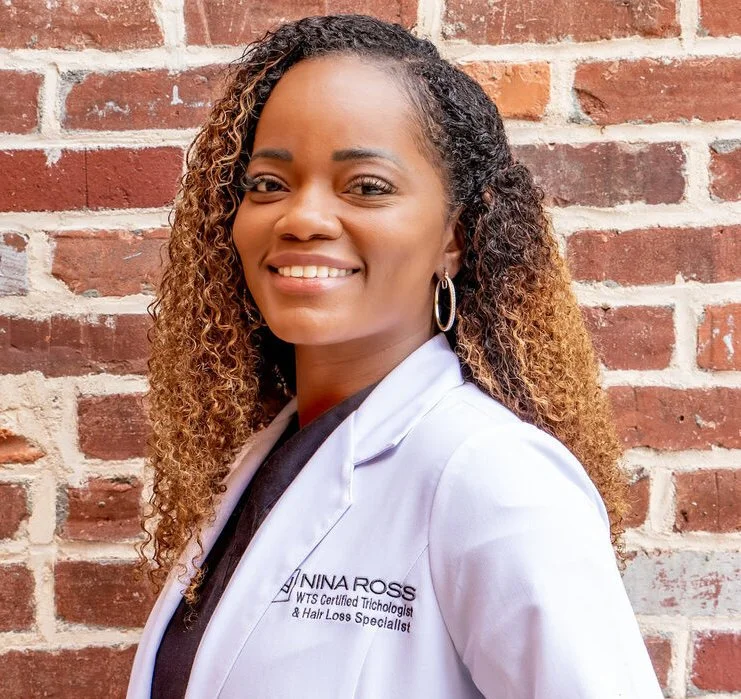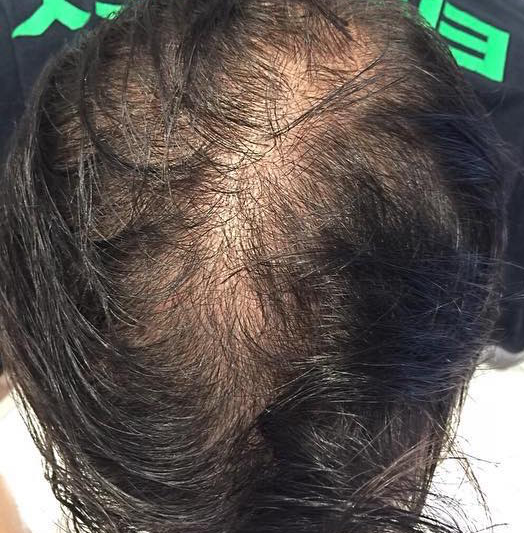Home / Common Concerns / CCCA
Central Centrifugal Cicatricial Alopecia | C.C.C.A.
Central Centrifugal Cicatricial Alopecia is one of the most common causes of hair loss among black women and though It may sound unfamiliar, it could be affecting you or someone that you know, today.
Ever heard of Hot Comb Alopecia?
“Hot Comb Alopecia” is a nick name used for Central Centrifugal Cicatricial Alopecia, which is a form of scarring alopecia (hair loss) on the scalp that can cause permanent hair loss without proper treatment.
CCCA generally targets the crown (center) of the scalp when the loss of hair begins.
Over time, it will gradually expand in a circular fashion, making the affected area larger. The condition will have different affects per person. Some women may experience hair loss at a faster rate than others.
C.C.C.A. Symptoms
The symptoms of CCCA will also vary per person. Some women with CCCA, may experience burning, scarring, itching, swelling, or discomfort.
Other women may experience no symptoms at all. To be proactive, perhaps you should consider seeing your trichologist or dermatologist for a proper diagnosis.
What ACTUALLY Causes Central Centrifugal Cicatricial Alopecia?
For years, the direct cause of CCCA was widely unknown, but thought to be a result of excessive heat, chemical treatments, and tension from braids, wigs, or extensions.
While these factors can very much contribute to hair loss, the true underlying cause for CCCA does not originate from any styling method.
This year, in March of 2019, a breakthrough in the dermatology industry was finally made and we now have scientific studies that verify the underlying cause of CCCA.
Professor Ncoza Dlova, from the University of KwaZulu-Natal and internationally renowned dermatologist of South Africa, assisted with discovering a new gene that studies found to be a leading cause of irreversible hair loss in black women.
Professor Dlova believes that this might be the biggest breakthrough in the South African dermatology industry.
She and her team of scientists conducted a 4 year study, titled (Variant PAD13 in Central Centrifugal Cicatricial Alopecia).
Dlova recruited patients with CCCA from Durban, South Africa from 2013-2016, and Winston-Salem, NC from 2014-2017 where they discovered that the gene – peptidylarginine deiminase (which is responsible for the regulation of hair proteins in our hair follicles) was mutated in most of the affected patients.
This means that the gene that stimulates hair growth in humans, was mutated or altered within the majority of the patients- therefore resulting in CCCA proving the condition to be genetically heterogenous.
The results of the study also found, those who have PADI3 mutations within their families should especially avoid the use of heat and tension on the scalp from braids, wigs, & extensions because these factors will actually trigger the disease.
What can you do about CCCA?
If you think that you may be affected, see your Trichologist right away.
CCCA needs to be treated in its early phases before your hair follicles become permanently damaged making your hair loss irreversible.
Treatment includes the use of anti-inflammatory agents to prevent the hair loss from continuing.
At Nina Ross, we focus on the health of your hair and scalp by providing hair restoration treatments, such as Mesotherapy and Platelet Rich Plasma Treatments to get the condition under control.
Spreading Awareness
“As a black woman, I understand how much of an impact that our hair can have on our lives. I’ve experienced ups and downs throughout my hair journey and my ultimate goal is to educate myself and others whenever I can. Things that we can always improve on, are staying informed on hair and scalp issues while maintaining healthy hair habits. CCCA is one of the most common causes for hair loss among black women and it could be currently affecting you or someone you know. Take care of your hair while you still have the chance.” -Nina Ross
Learn more about:
Why Nina Ross Hair Therapy?
State of the art + PERSONALIZED TREATMENTS
Founder of NRHT - Dr. Nina Lassiter, BCDHH
Transformations
View Real Patient Before & Afters
Reviews
see testimonials from current clients
Get answers from a specialist
Request a phone call and get your questions answered
Call 678.561.4522















